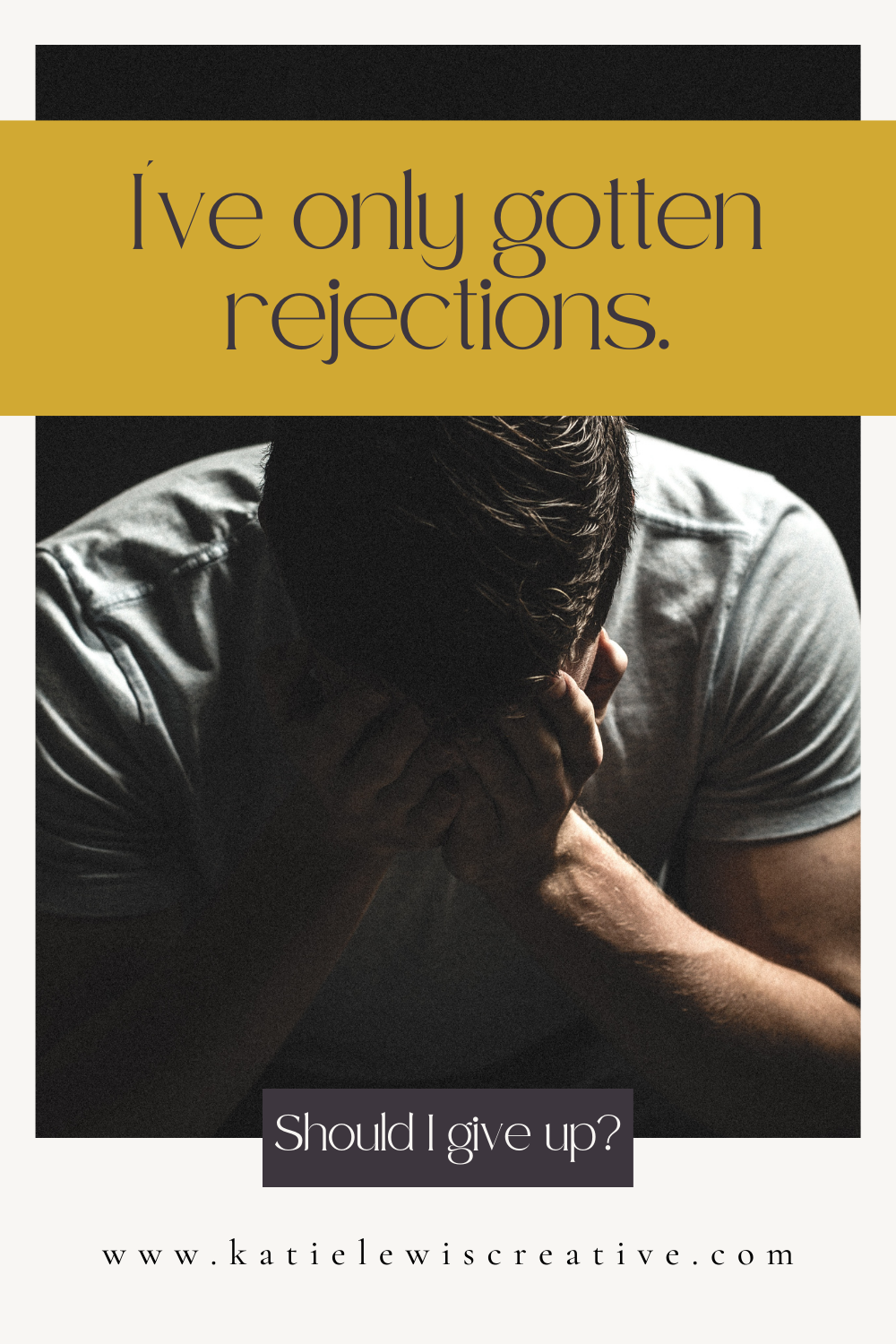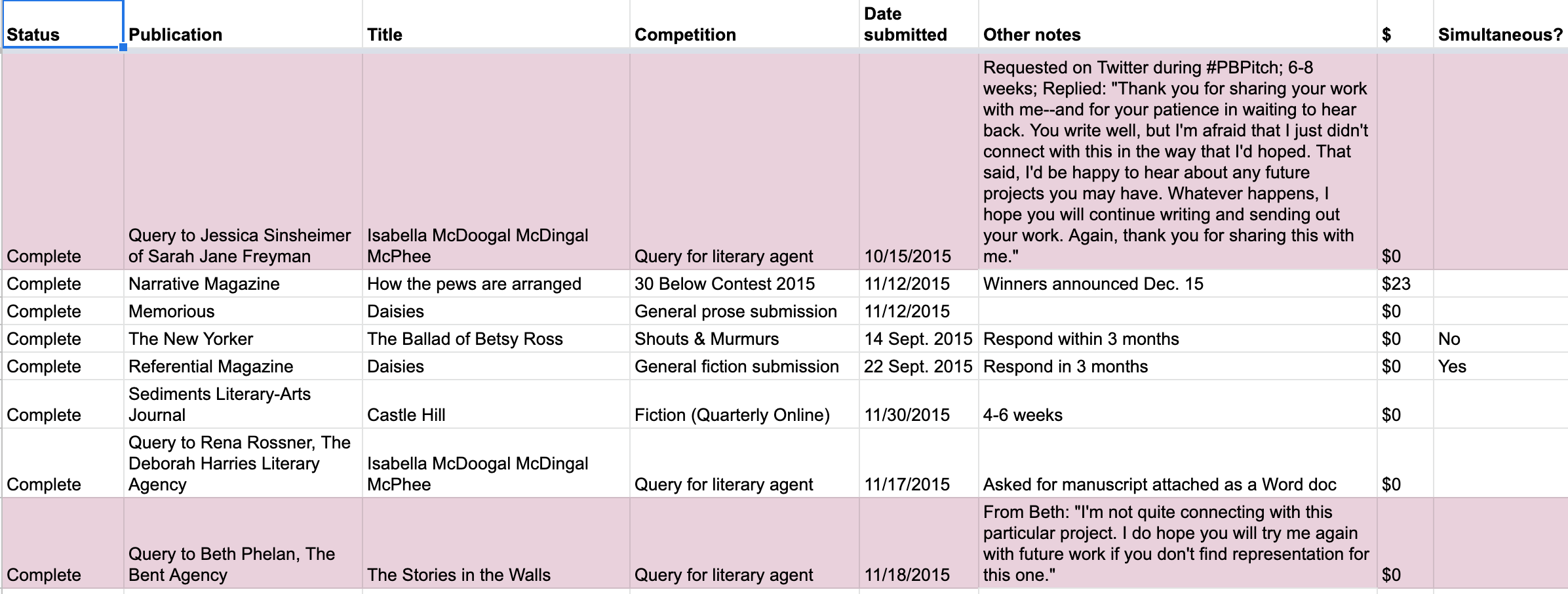How many rejections is too many rejections?
I won’t dilly-daly: Rejections do not mean it’s time to throw in the towel on your creative work. Please don’t, in fact. If you’re an artist with something to say, you must say it.
Now. Having said that, the point of making a statement with your creative writing is for you, the creator, to have the experience of creating. Unburdening. Lifting the weight off your shoulders. Expressing yourself.
The point of creative writing is not publication. (Please, reader, if you take anything away from this blog, let it be this.)
“OK, OK,” you say. “I get it. It’s about the journey not the destination. But anyway: How can I get published?”
See, I know you. We’re the same. I wanted to publish my stories, too. And did! And of course, it didn’t feel like I anticipated it would, because it never does, right?
Regardless, I totally understand if you still yearn to see your book on the bookstore’s shelf (or that of an online book behemoth that shall remain nameless). You’re doing the hard work of self-editing, bringing in a professional editor (Hi!), writing literary agent query letters, and reaching out to others in the creative community for advice. That’s all part of the process.
And so, I regret to inform you, are rejections. They’re the main part, because they hurt so gosh-darn badly.
Every creative writer has been rejected
Every, single one. No one was a success right off the bat, not even so-called overnight sensations — of which there are few in the publishing world.
You must know someone from high school who got into a parent’s alma mater and was ushered into the family business soon after. This nepotism likely has co-workers and employees thinking twice before offering them any constructive criticism.
Now tell me that person isn’t insufferable.
People who have never had their ideas challenged don’t grow and learn. They don’t have to, so they don’t work as hard.
Creatives are not lazy. We are brave and determined, and rejections are necessary for growth. Writing rejections are typically a blanket “no,” yet sometimes they’re lovely and accompanied by useful advice.
Rejections make writers better
To grow at your craft — you do want to become a better writer as time goes on, right? — you must remain open to the criticism that comes your way. Rejections don’t mean you’re terrible. They don’t mean you’re bad at what you’re trying to do or that you’ve disgustingly wasted someone’s time. Far from it.
Rejections from literary agents or magazines are usually because:
Your piece needs more editing — which you probably already knew when you submitted it (tsk-tsk).
Your piece is unsuccessful in what it’s trying to do. (Some stories just don’t work. They don’t achieve in conveying a message.)
Your work is too similar to another writer the agent represents or another piece the magazine recently published.
So what do you do with that? You can either argue until you’re blue in the face — and please don’t, both for your health and to avoid burning bridges — or you can reframe.
Reframe what rejection means to you
Here’s my #1 favorite thing about receiving a rejection that comes with a note (instead of just a form email):
It’s free advice.
There are scores of paid-entry writing contests that include editorial feedback as part of their prize, but with a rejection, it’s one person looking at your work and telling you why it’s a no from them.
Don’t let this gold out of your grips, though: Record it somewhere so that you can refer back to it.
I have a spreadsheet where I keep track of all writing submissions — to literary agents, literary magazines, websites, writing contests, indie publishers, etc. — and one of the columns is for notes like this.
When the person in charge of submissions does me the honor of sharing feedback, not only do I include it here, but I highlight the entire row in another color so it’s easy to spot when I scroll through the document.
Here’s a look from awhile back:
By the way: I use “Complete” as the status for rejected pieces. It makes me feel better than a big ol’ REJECTED.
See? We all have our feelings about rejection. Just don’t let those feelings deter you from continuing on with your vocation.
So how many rejections is too many?
Oh yes. That.
I’ve been submitting since 2013 — again, that’s to literary agents, literary magazines, websites, writing contests, indie publishers, and more — and in that time, I’ve accrued 229 rejections.
The spreadsheet where I’m keeping track of it all looks like this:
229 Complete (aka NOPE)
9 ACCEPTED (which I put in all-caps even in my doc because it’s exciting and should be celebrated)
5 In process (which usually turns out to be people who simply don’t respond)
It sounds like a lot. Or does it? I don’t know — what’s your barometer? Because what I see in the above list is that I had a book published, my short stories have appeared in magazines, and essays I had the ideas for were bought by publications I admire.
So in the end, how many rejections is too many? It never stops. It’s the ACCEPTEDs you’re after.
You might also be interested in:


